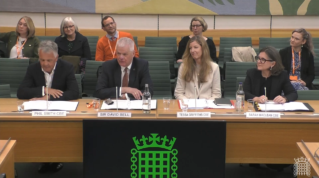The average Premier League manager is in post for just under two years before they lose their job. Les Reed managed just 41 days at Charlton Athletic. In that context, the Institute for Apprenticeships and Technical Education (IfATE) reaching seven years old is an achievement.
But in the context of meeting the long-term learning and skills needs of our country, it’s not very long at all.
IfATE now follows a long list of predecessors including the Manpower Services Commission, Learning and Skills Council, Skills Funding Agency, Skills Advisory Panels, UK Commission for Employment and Skills (UKCES), Training and Enterprise Councils and more into the lengthening history of skills acronyms.
But will its successor, Skills England fare any better?
Trouble ahead?
The government says it wants Skills England to give a clear picture of the country’s skills needs, join up support to deliver that, and work with bodies like the Migration Advisory Committee (MAC) to help deliver national priorities.
But will it have the power to deliver real change?
Unlike IfATE, it won’t have a founding in legislation. Instead, it will be a Department for Education agency, with the Secretary of State deciding which of IfATE’s powers it can have.
Having a legislative base doesn’t mean you will succeed or survive (ask UKCES, among others). But it is one way in which you have clout.
And will Skills England be too narrowly focused?
If it is limited to producing skills forecasts, encouraging everyone to deliver them and approving apprenticeship standards and training allowed under the Growth and Skills Levy, it will fail.
The narrowness of the legislation (focused on transferring IfATE’s powers) means there is a risk Skills England will lack both power and breadth – a sort of IfATE-lite.
The good news is it’s early days. So what would it take for Skills England to be a success and avoid becoming the latest addition to the acronym scrapheap?
Independence and breadth of remit
A legislative base, including a duty to promote lifelong learning of all types, would be one way to cement the body’s independence. If not that, then its board and leadership will need to demonstrate it.
Skills England needs to focus on perhaps our biggest challenge: underinvestment and underutilisation of skills by employers: our research shows they’re spending 26 per cent less on training per employee than in 2005.
It also needs to look at learning at all levels and for all reasons. Medr, Wales’ new post-16 skills body, has a statutory duty to promote lifelong learning at a variety of levels and range of ways, including higher education. Will Skills England do likewise?
Real powers
These should include:
- working with the MAC to agree plans with employers to increase their training and recruitment investment. That could be underpinned by a higher Immigration Skills Charge for sectors with highest demand for visas, with Skills England controlling the extra funds raised.
- agreeing with sectors binding ways to increase employer training investment. That includes building it into the planned Fair Pay Agreement in social care to increase the pipeline of workers for that sector, and encouraging the introduction of additional skills levies (as in construction) in sectors where employers don’t increase their investment voluntarily.
- overseeing devolution deals in England, signing off outcome agreements that show how many more people will get into work or improve their skills through greater local control of a single pot of employment and skills funding.
Looking out for skills
The government wants to move to clean energy by 2030, build 1.5 million homes in five years, cut NHS waiting lists and boost economic growth. Skills England must ensure workforce and skills plans are built into those, as well as ensuring the skills system delivers for industrial strategy priority sectors.
Skills England will not operate in a vacuum. The government’s manifesto commitment to a post-16 strategy offers hope of an open discussion about what a simplified system with sustained investment might look like.
No Premier League manager lasts forever, but for Skills England to succeed, it needs to be a lot less like Les Reed, and a lot more like Arsène Wenger.

















Your thoughts